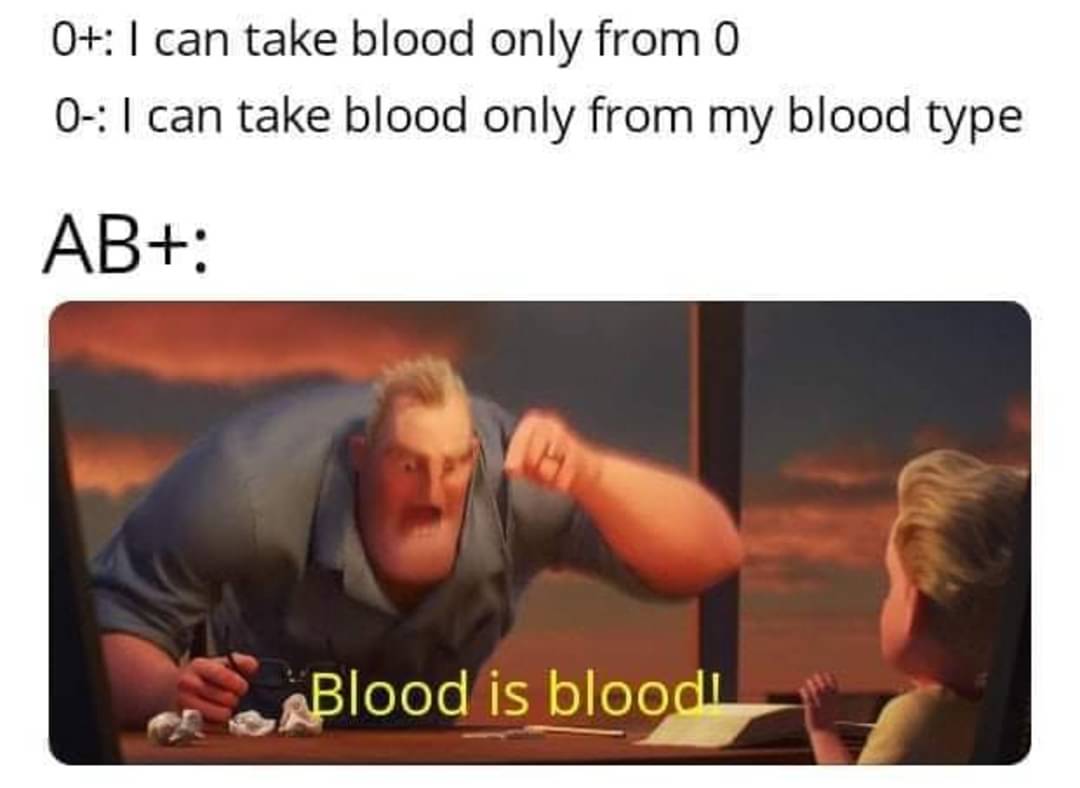this post was submitted on 20 Jun 2024
614 points (97.5% liked)
Science Memes
12027 readers
1586 users here now
Welcome to c/science_memes @ Mander.xyz!
A place for majestic STEMLORD peacocking, as well as memes about the realities of working in a lab.

Rules
- Don't throw mud. Behave like an intellectual and remember the human.
- Keep it rooted (on topic).
- No spam.
- Infographics welcome, get schooled.
This is a science community. We use the Dawkins definition of meme.
Research Committee
Other Mander Communities
Science and Research
Biology and Life Sciences
- [email protected]
- [email protected]
- [email protected]
- [email protected]
- [email protected]
- [email protected]
- [email protected]
- [email protected]
- [email protected]
- [email protected]
- [email protected]
- [email protected]
- [email protected]
- [email protected]
- [email protected]
- [email protected]
- [email protected]
- [email protected]
- [email protected]
- [email protected]
- [email protected]
- [email protected]
- [email protected]
- [email protected]
- !reptiles and [email protected]
Physical Sciences
- [email protected]
- [email protected]
- [email protected]
- [email protected]
- [email protected]
- [email protected]
- [email protected]
- [email protected]
- [email protected]
Humanities and Social Sciences
Practical and Applied Sciences
- !exercise-and [email protected]
- [email protected]
- !self [email protected]
- [email protected]
- [email protected]
- [email protected]
Memes
Miscellaneous
founded 2 years ago
MODERATORS
you are viewing a single comment's thread
view the rest of the comments
view the rest of the comments

It ends up being more complicated. You get enough infusions as AB+ and you'll start picking up strange antibodies that increase your chance for that sense of impending doom
Similarly you could likely receive O+ blood if you were O- without adverse effects, but only once.
Yeah we don’t really mix blood types at all here in Lebanon, and I really doubt they do anywhere else. Universal donor and universal recipient is just theory, in practice it’s easier to receive O- than AB+ because AB is really uncommon (as is the case everywhere).
AFAIK the A/B and Rhesus antigens are not the only markers and there are more blood compatibility components that are taken into account if possible.
I have a relative who has an unfortunate condition that causes internal bleeding. They've had enough blood transfusions that their antibodies are completely haywire.
Multiple times, doctors have not listened to their protests, and given them O-. They turn an impressive shade of yellow (among other, more serious, issues).
Last I heard, there were 2 compatible donors known, 1 in a different country. Thankfully, you can store blood longer term. It's just not cost efficient to do in bulk. They have their own little stockpile of blood at their local hospital (mostly self donated).